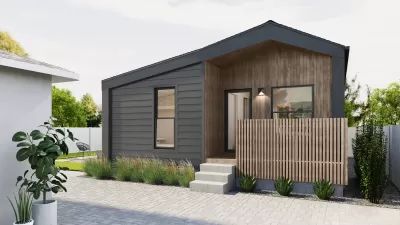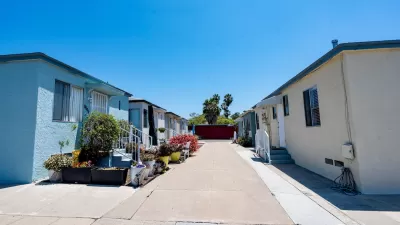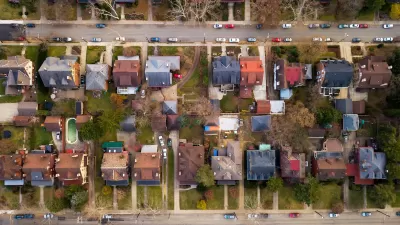Tacoma, Washington, a city of over 200,000 residents in the Pacific Northwest, is making room for more.

The city of Tacoma is considering a law that would allow "Detached Accessory Dwelling Units" in single-family neighborhoods throughout the city.
Rubén Casas reports that the law is receiving support from the public, as shown at a recent public hearing on the proposed law.
"The idea to allow more greater [sic] numbers of 'Detached Accessory Dwelling Units,' or DADUs, was first taken up by the city in December 2017 as part of the city’s larger Residential Infill Pilot Program. Since then, accessory dwelling units have been permitted as part of a pilot program," according to Casas.
Casas also provides an explanation of accessory dwelling unit as a housing policy tool to address housing affordability concerns—even in suburban communities like Tacoma. Particularly telling about the huge impact incremental changes to zoning codes can potentially achieve, Casas rights about the potential benefits of accessory dwelling units:
More housing options like ADUs can mean the difference between losing one’s home because a homeowner can no longer afford a mortgage and being able to keep their home because they have an additional source of income; a DADU permits senior citizens the opportunity to age in place; a DADU makes it possible for a child to return home after college or after losing a job in an economy where the cost of college doesn’t match the earning power of college graduates; DADUs, as they are rented at a lower price than market-rate apartments, allow working-class and members of the service industry to live near their workplaces.
FULL STORY: Tacoma Says ‘Yes” to Cottages in its Backyard

Planetizen Federal Action Tracker
A weekly monitor of how Trump’s orders and actions are impacting planners and planning in America.

Maui's Vacation Rental Debate Turns Ugly
Verbal attacks, misinformation campaigns and fistfights plague a high-stakes debate to convert thousands of vacation rentals into long-term housing.

Restaurant Patios Were a Pandemic Win — Why Were They so Hard to Keep?
Social distancing requirements and changes in travel patterns prompted cities to pilot new uses for street and sidewalk space. Then it got complicated.

In California Battle of Housing vs. Environment, Housing Just Won
A new state law significantly limits the power of CEQA, an environmental review law that served as a powerful tool for blocking new development.

Boulder Eliminates Parking Minimums Citywide
Officials estimate the cost of building a single underground parking space at up to $100,000.

Orange County, Florida Adopts Largest US “Sprawl Repair” Code
The ‘Orange Code’ seeks to rectify decades of sprawl-inducing, car-oriented development.
Urban Design for Planners 1: Software Tools
This six-course series explores essential urban design concepts using open source software and equips planners with the tools they need to participate fully in the urban design process.
Planning for Universal Design
Learn the tools for implementing Universal Design in planning regulations.
Heyer Gruel & Associates PA
JM Goldson LLC
Custer County Colorado
City of Camden Redevelopment Agency
City of Astoria
Transportation Research & Education Center (TREC) at Portland State University
Jefferson Parish Government
Camden Redevelopment Agency
City of Claremont





























